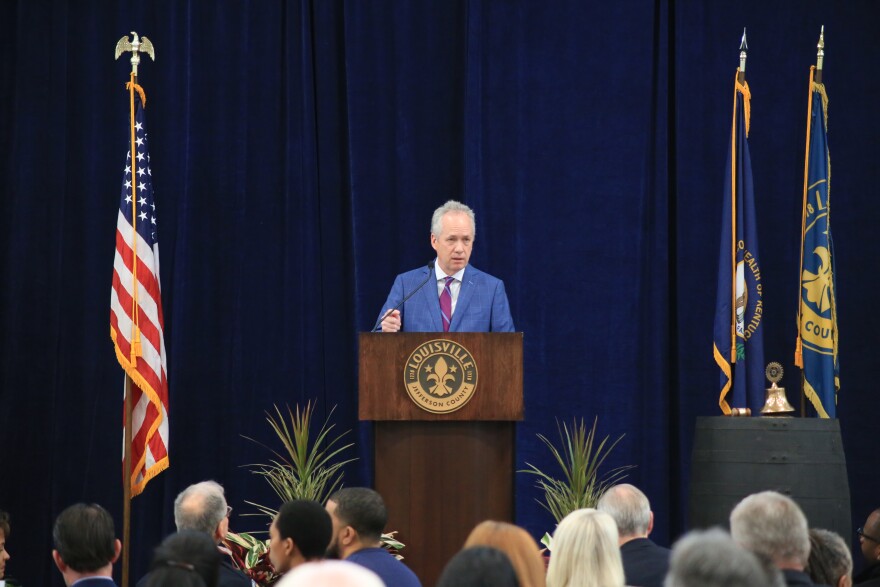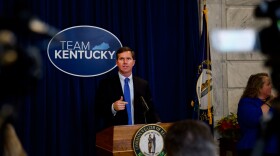Mayor Greg Fischer is warning Louisville residents that the outlook for next year’s budget is looking bleak without more funding from the federal government.
"What we're talking about this next year, what we did last year will look like a walk in the park," he said during his daily press conference Wednesday.
He was referring to the more than $25 million officials cut from this fiscal year's budget to pay for rising employee health care and pension costs. They made changes to address some of those expenses this year, and state legislators recently froze the pension rate for the new fiscal year starting in July.
But economically-speaking, the pandemic is striking Louisville where it hurts, Fischer said. Soaring unemployment, for example, is affecting how much occupational tax Louisville collects. That fee accounts for nearly half the revenue in the city’s $625 million general fund.
While Louisville received more than $100 million from the federal government as part of the recent stimulus package, Fischer said that money can only be used for direct COVID-19 response.
"That's not the issue," he said. "The issue that we're facing is a severe drop-off in the economy. It's leading to the severe drop-off in tax revenue in our general fund to provide services I spoke about before: policing, public health, firefighting, all those type of things."
Daniel Frockt, Louisville Metro's chief financial officer, said the public will have to wait until the Mayor’s budget proposal presentation on April 23 to get the administration’s estimate of how short revenue may fall before the end of June. But they don’t expect to meet their targets.
He said whatever the mayor presents in two weeks may change significantly before the Metro Council passes a budget in late June, and that it could continue to be amended as time goes on.
Frockt said there isn’t a specific number Louisville is seeking from the feds, but what the city needs is general relief for services ranging from public safety to meal delivery.
"It's not unique to Louisville. That’s every state and that's every city that's trying to provide on-the-ground relief, and we don't want to be cutting our services at the time they're probably most needed due to the economic downturn," he said.
Last year's cuts already hit several services needed by the city's most vulnerable residents.
Although Louisville Metro officials aren’t ready to release their forecasts yet, economist Paul Coomes built a model to project what a two-month-long shutdown could mean for the city’s budget as part of a consulting project for the Metro Council. He is advising the council and estimates the pandemic could result in revenues from the city’s two top taxes dropping 3%, or about $18 million.
The idea of using Louisville’s so-called rainy day fun makes sense to Coomes. It’s something both Fischer and Frockt said they’re strongly considering.
Fischer said it’s important not to deplete the rainy day fund. And according to Frockt, the fund's level is already lower than ideal. But Fischer says it's meant for situations like this one.
"If we had to use all that, and if we don't get money from the federal government, then obviously we'll have to severely cut the amount of services that are delivered to the public. And we want to avoid that at all," Fischer said.
What all of these people cautioned is that the situation is fluid. The budget officials expect to pass and the one they ultimately pass could be significantly different.






